Bo Hou
M$^3$Fair: Mitigating Bias in Healthcare Data through Multi-Level and Multi-Sensitive-Attribute Reweighting Method
Jun 07, 2023
Abstract:In the data-driven artificial intelligence paradigm, models heavily rely on large amounts of training data. However, factors like sampling distribution imbalance can lead to issues of bias and unfairness in healthcare data. Sensitive attributes, such as race, gender, age, and medical condition, are characteristics of individuals that are commonly associated with discrimination or bias. In healthcare AI, these attributes can play a significant role in determining the quality of care that individuals receive. For example, minority groups often receive fewer procedures and poorer-quality medical care than white individuals in US. Therefore, detecting and mitigating bias in data is crucial to enhancing health equity. Bias mitigation methods include pre-processing, in-processing, and post-processing. Among them, Reweighting (RW) is a widely used pre-processing method that performs well in balancing machine learning performance and fairness performance. RW adjusts the weights for samples within each (group, label) combination, where these weights are utilized in loss functions. However, RW is limited to considering only a single sensitive attribute when mitigating bias and assumes that each sensitive attribute is equally important. This may result in potential inaccuracies when addressing intersectional bias. To address these limitations, we propose M3Fair, a multi-level and multi-sensitive-attribute reweighting method by extending the RW method to multiple sensitive attributes at multiple levels. Our experiments on real-world datasets show that the approach is effective, straightforward, and generalizable in addressing the healthcare fairness issues.
Flexible Alignment Super-Resolution Network for Multi-Contrast MRI
Oct 07, 2022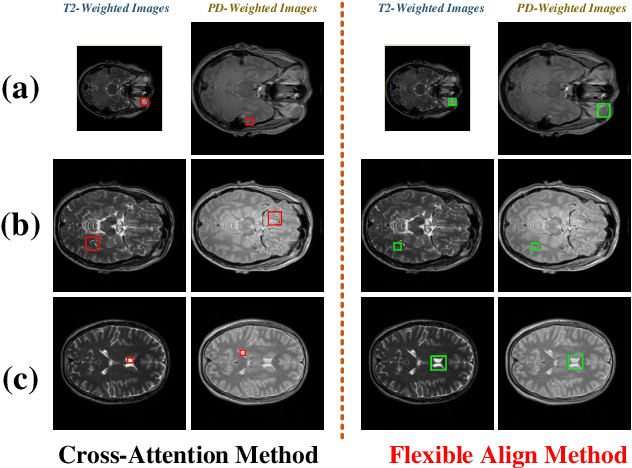
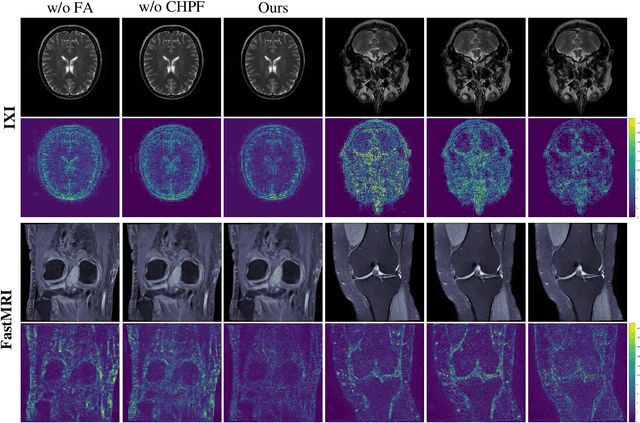
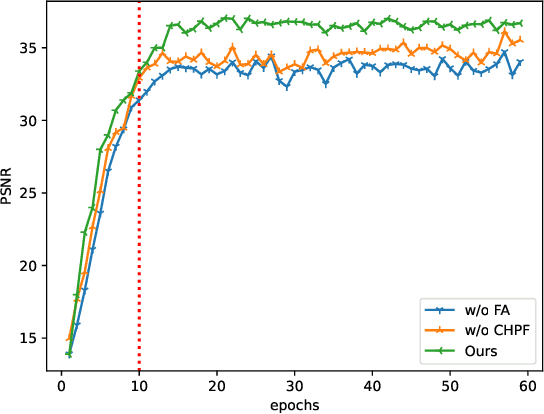

Abstract:Magnetic resonance images play an essential role in clinical diagnosis by acquiring the structural information of biological tissue. However, during acquiring magnetic resonance images, patients have to endure physical and psychological discomfort, including irritating noise and acute anxiety. To make the patient feel cozier, technically, it will reduce the retention time that patients stay in the strong magnetic field at the expense of image quality. Therefore, Super-Resolution plays a crucial role in preprocessing the low-resolution images for more precise medical analysis. In this paper, we propose the Flexible Alignment Super-Resolution Network (FASR-Net) for multi-contrast magnetic resonance images Super-Resolution. The core of multi-contrast SR is to match the patches of low-resolution and reference images. However, the inappropriate foreground scale and patch size of multi-contrast MRI sometimes lead to the mismatch of patches. To tackle this problem, the Flexible Alignment module is proposed to endow receptive fields with flexibility. Flexible Alignment module contains two parts: (1) The Single-Multi Pyramid Alignmet module serves for low-resolution and reference image with different scale. (2) The Multi-Multi Pyramid Alignment module serves for low-resolution and reference image with the same scale. Extensive experiments on the IXI and FastMRI datasets demonstrate that the FASR-Net outperforms the existing state-of-the-art approaches. In addition, by comparing the reconstructed images with the counterparts obtained by the existing algorithms, our method could retain more textural details by leveraging multi-contrast images.
A Social Search Model for Large Scale Social Networks
May 09, 2020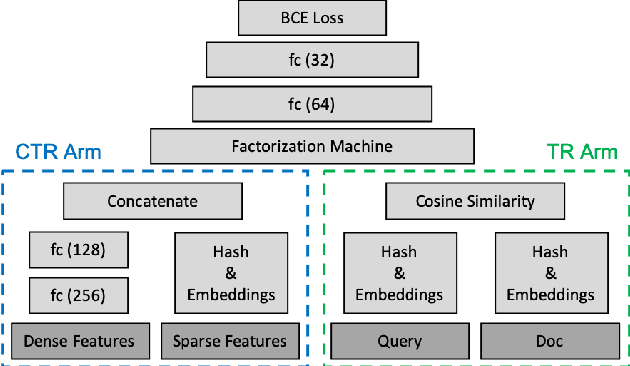

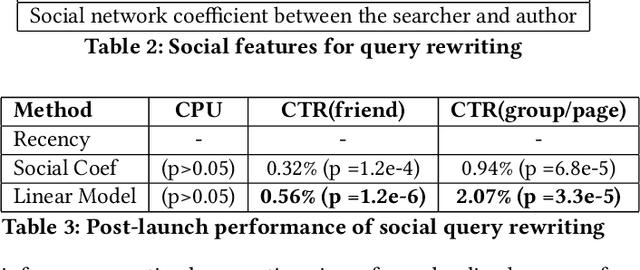
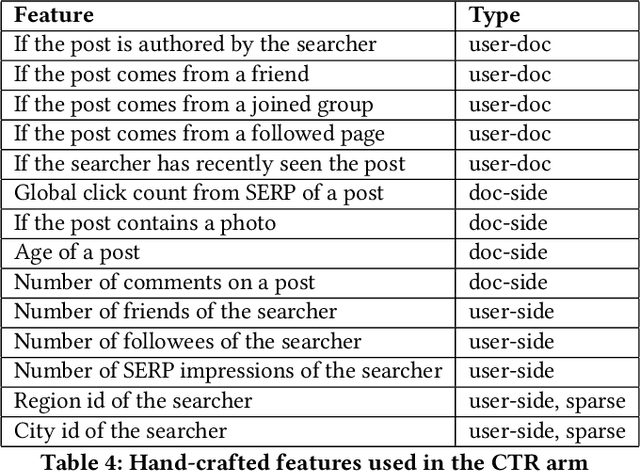
Abstract:With the rise of social networks, information on the internet is no longer solely organized by web pages. Rather, content is generated and shared among users and organized around their social relations on social networks. This presents new challenges to information retrieval systems. On a social network search system, the generation of result sets not only needs to consider keyword matches, like a traditional web search engine does, but it also needs to take into account the searcher's social connections and the content's visibility settings. Besides, search ranking should be able to handle both textual relevance and the rich social interaction signals from the social network. In this paper, we present our solution to these two challenges by first introducing a social retrieval mechanism, and then investigate novel deep neural networks for the ranking problem. The retrieval system treats social connections as indexing terms, and generates meaningful results sets by biasing towards close social connections in a constrained optimization fashion. The result set is then ranked by a deep neural network that handles textual and social relevance in a two-tower approach, in which personalization and textual relevance are addressed jointly. The retrieval mechanism is deployed on Facebook and is helping billions of users finding postings from their connections efficiently. Based on the postings being retrieved, we evaluate our two-tower neutral network, and examine the importance of personalization and textual signals in the ranking problem.
 Add to Chrome
Add to Chrome Add to Firefox
Add to Firefox Add to Edge
Add to Edge